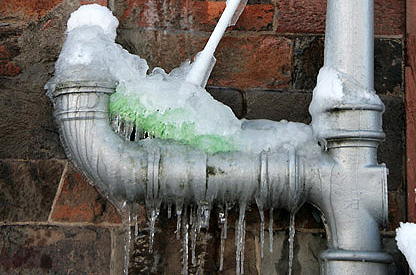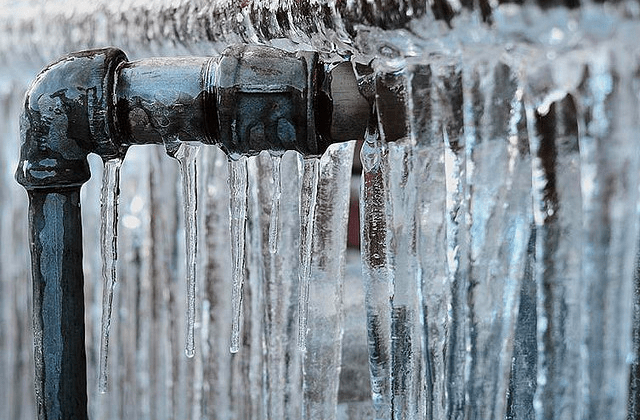Ways to Maintain Your Pipes from Freezing Issues: Crucial Guidance
Ways to Maintain Your Pipes from Freezing Issues: Crucial Guidance
Blog Article
What are your insights and beliefs about How To Avoid Freezing Pipes?

Winter can damage your plumbing, specifically by freezing pipelines. Here's just how to avoid it from occurring and what to do if it does.
Introduction
As temperature levels drop, the risk of frozen pipes increases, potentially leading to costly repairs and water damages. Recognizing just how to stop icy pipes is important for property owners in cold environments.
Avoidance Tips
Protecting susceptible pipelines
Cover pipes in insulation sleeves or make use of warm tape to safeguard them from freezing temperature levels. Focus on pipes in unheated or outside areas of the home.
Home heating techniques
Maintain interior rooms sufficiently heated, particularly locations with plumbing. Open up cabinet doors to enable cozy air to circulate around pipelines under sinks.
Just how to identify icy pipelines
Look for reduced water circulation from taps, unusual odors or noises from pipelines, and noticeable frost on revealed pipes.
Long-Term Solutions
Structural modifications
Think about rerouting pipelines far from outside wall surfaces or unheated locations. Include added insulation to attic rooms, cellars, and crawl spaces.
Upgrading insulation
Purchase high-grade insulation for pipelines, attics, and wall surfaces. Proper insulation aids preserve regular temperature levels and reduces the threat of frozen pipelines.
Safeguarding Exterior Plumbing
Yard hose pipes and exterior faucets
Detach and drain pipes garden tubes before wintertime. Install frost-proof spigots or cover outside taps with insulated caps.
Comprehending Icy Pipes
What triggers pipelines to ice up?
Pipelines freeze when subjected to temperature levels listed below 32 ° F (0 ° C) for expanded durations. As water inside the pipes freezes, it expands, putting pressure on the pipe walls and possibly triggering them to rupture.
Threats and problems
Icy pipelines can cause water disturbances, residential or commercial property damage, and expensive repairs. Ruptured pipelines can flood homes and cause comprehensive architectural damages.
Indications of Frozen Pipes
Identifying icy pipes early can prevent them from breaking.
What to Do If Your Pipes Freeze
Immediate actions to take
If you believe frozen pipelines, keep faucets open up to ease stress as the ice melts. Use a hairdryer or towels taken in hot water to thaw pipelines gradually.
Final thought
Preventing frozen pipelines requires aggressive steps and quick actions. By recognizing the reasons, indications, and preventive measures, home owners can safeguard their pipes during winter.
Helpful Tips to Prevent Frozen Pipes this Winter
UNDERSTANDING THE BASICS: WHY PIPES FREEZE AND WHY IT’S A PROBLEM
Water freezing inside pipes is common during the winter months, but understanding why pipes freeze, and the potential problems it can cause is crucial in preventing such incidents. This section will delve into the basics of why pipes freeze and the associated problems that may arise.
THE SCIENCE BEHIND FROZEN PIPES
When water reaches freezing temperatures, it undergoes a physical transformation and solidifies into ice. This expansion of water as it freezes is the primary reason pipes can burst. As the water inside the pipe freezes, it expands, creating immense pressure on the walls. If the pressure becomes too great, the pipe can crack or rupture, leading to leaks and water damage.
FACTORS THAT CONTRIBUTE TO PIPE FREEZING
Low Temperatures: Extremely cold weather, especially below freezing, increases the risk of pipes freezing. Uninsulated or Poorly Insulated Pipes: Pipes located in unheated areas, such as basements, crawl spaces, or attics, are more prone to freezing. Insufficient insulation or lack of insulation altogether exacerbates the problem. Exterior Wall Exposure: Pipes running along exterior walls are susceptible to freezing as they encounter colder temperatures outside. Lack of Heating or Temperature Regulation: Inadequate heating or inconsistent temperature control in your home can contribute to frozen pipes. PROBLEMS CAUSED BY FROZEN PIPES
- Pipe Bursting: As mentioned earlier, the expansion of water as it freezes can cause pipes to burst, resulting in significant water damage.
- Water Damage: When pipes burst, it can lead to flooding and water damage to your property, including walls, ceilings, flooring, and personal belongings.
- Structural Damage: Prolonged exposure to water from burst pipes can compromise the structural integrity of your home, leading to costly repairs.
- Mold and Mildew Growth: Excess moisture from water damage can create a favorable environment for mold and mildew growth, posing health risks to occupants.
- Disrupted Water Supply: Frozen pipes can also result in a complete or partial loss of water supply until the issue is resolved.
WHY CERTAIN PIPES ARE MORE PRONE TO FREEZING
- Location: Pipes located in unheated or poorly insulated areas, such as basements, crawl spaces, attics, or exterior walls, are at higher risk of freezing.
- Exterior Pipes: Outdoor pipes, such as those used for irrigation or exposed plumbing, are particularly vulnerable to freezing as they are directly exposed to the elements.
- Supply Lines: Pipes that carry water from the main water supply into your home, including the main water line, are critical to protect as freezing in these lines can affect your entire plumbing system.
- Underground Pipes: Pipes buried underground, such as those connected to sprinkler systems or outdoor faucets, can be susceptible to freezing if not properly insulated.
https://busybusy.com/blog/helpful-tips-to-prevent-frozen-pipes-this-winter/

Do you like reading about Helpful Tips to Prevent Frozen Pipes this Winter? Try leaving a remark below. We'd be glad to find out your feelings about this blog entry. In hopes that you come back again later on. Those who enjoyed our blog entry kindly do not forget to share it. Thank you so much for taking the time to read it.
Estimate Free Report this page